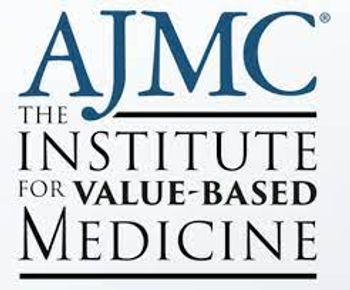
Health System
Latest News

Latest Videos

Podcasts
CME Content
More News

Longer appointment duration was associated with lower likelihood of missed appointments for patients receiving care at a federally qualified health center network.

In this interview, chief operating officer and cofounder of Upfront Healthcare, Carrie Kozlowski, OT, MBA, discusses the integration of artificial intelligence (AI) in health care, emphasizing both opportunities and risks.

Patients who revisit the emergency department shortly after discharge are at high risk for complications and death, exacerbated by COVID-19 screening workload. Detection efforts impact outcomes.

The findings challenge the effectiveness of these widely used transitional care interventions and suggest a need for more targeted, multifaceted approaches to address the needs of higher-risk patients.

This article examines the prevalence of unused primary care appointments in the Veterans Affairs Health Care System.

Researchers developed and tested an assessment tool to measure coordinated care for traumatic brain injury against the criteria of an integrated practice unit.

Older adults in the United States are disproportionately affected by health care costs compared with their counterparts in other wealthy nations.

The Wellness Way facility was designed to improve access to comprehensive outpatient care and address social determinants of health for a diverse patient population.

Lindsay Bealor Greenleaf, JD, MBA, of ADVI Health, weighs in on what to expect in key health care policy areas in the wake of the election.

This article used regression analyses to quantify how clinical staff perceive provider feedback to improve human papillomavirus (HPV) vaccination rates and determine the prevalence of such feedback.

Authors found the pharmacy costs for momelotinib were $11,095 higher per month, too much to offset higher transfusion costs for ruxolitinib.

Proactive care management for artificial intelligence (AI)–identified at-risk patients reduced potentially preventable hospital admissions.

Private negotiated facility fees at hospitals are on average double the ambulatory surgery center facility fees for common outpatient procedures.

Patients with transfusion-dependent β-thalassemia experienced 14.8 hospitalizations annually, according to the findings.


Value-based agreements come with risks and benefits, but a health system’s existing facilities and initiatives can help support the goals associated with them, JT Lew, PharmD, MBA, a managed care pharmacist at MultiCare Health System, explained.

As hurricane season approaches, doctors, pharmacists, and clinics prepare for treating their patients when accessibility is limited.

Benjamin Scirica, MD, MPH, director of quality initiatives at Brigham and Women’s Hospital’s Cardiovascular Division, discussed the importance of team-based care and gaps in technology to manage patients at risk of cardiovascular disease (CVD).

Laurence Sperling, MD, executive director of the Million Hearts initiative at the CDC and CMS, shared insight into population health strategies to address cardiovascular disease (CVD) prevention in at-risk populations.

The author discusses a program to prevent kidney decline and progression to dialysis by offering education, support services, and help navigating the health care system to those most at risk.

Experiences from a large, integrated, value-based health system suggest that telehealth can be an effective care delivery approach. Public policies can improve telehealth access and care.

Dax Kurbegov, MD, senior vice president of Sarah Cannon Cancer Network, discussed divides between payers, health systems, and oncology care providers, as well as the impacts these divides can have on patients.

The findings may help inform policy changes at the federal level aiming to address unfair and deceptive pharmacy benefit manager (PBM) practices.

Patients on specialty medications may face many barriers that prevent them from getting on or staying on therapy, but a specialty pharmacy integrated into a health system can help address these issues, explained Ryan Nix, PharmD, MMHC, of Vanderbilt Specialty Pharmacy.

A review of the upcoming schedule of the Institute for Value-Based Medicine.






















